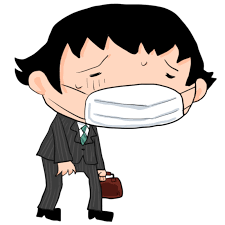
“The word presenteeism was first coined to define the practice of workers reporting to work when ill and not operating to their usual level of productivity”
Frighteningly, small and medium sized enterprises (SMEs) are failing to tackle the trend of presenteeism at their companies. When your employees come to work not mentally present due to an illness, stress and extreme family or life pressures, they are not giving themselves adequate time address their situation. While they are at work, their performance can deteriorate and this can affect an organisation just as sickness or absence can in terms of productivity and performance.
It is also a sign that companies are failing to take active steps to promote health and wellbeing in their organisations, not only is it detrimental to the individual concerned, it has a negative impact on your wider business as well, as people who are ill feel that they must turn up for work then spread the illness and drain productivity through the company.
Also, when stress related conditions are considered by your employees to be as severe as minor illnesses, it can be a detrimental to the well-being of your company as this can be seen by some as a slave driven organisation and can lead to an exodus of key staff.
Presenteeism is most common in people with young children, or lower paid workers, or employees with poor health and those who have a difficulty in saying No or setting boundaries when confronted with excessive daily demands.

It can become rampant when your staff feel that:
They cannot afford to take the day off as there is no back-up plan for tasks the individual is responsible for and when they returned to work, there would be even more to do
Sometimes it is when they have committed to personally attending meetings or events
And at times they can be concerned about job insecurity related to downsizing or restructuring
Also, a heavy workload was found to be the most important factor of increased presenteeism
It is not often measured as closely as absenteeism, companies who assume that if sickness rates are low, then their employees are generally healthy but this is when your employees feel pressure to attend work despite an illness.
I know of situations where people who uses short absences from work are using this a coping mechanism to mask serious problems within the organisation.
So, what do you need to do?
The best way to reduce presenteeism within a workplace is to improve the overall health of employees, you have a duty of care and you need to communicate and show that it is ok to not feel 100% and that you as an employer are understanding of the stresses and strains of work and home. You should also promote a work/life balance and practice what you preach.
The costs to owner managed businesses or SME’s is not only financial but reputational as well if you are haemorrhaging your best assets which are your employees.
